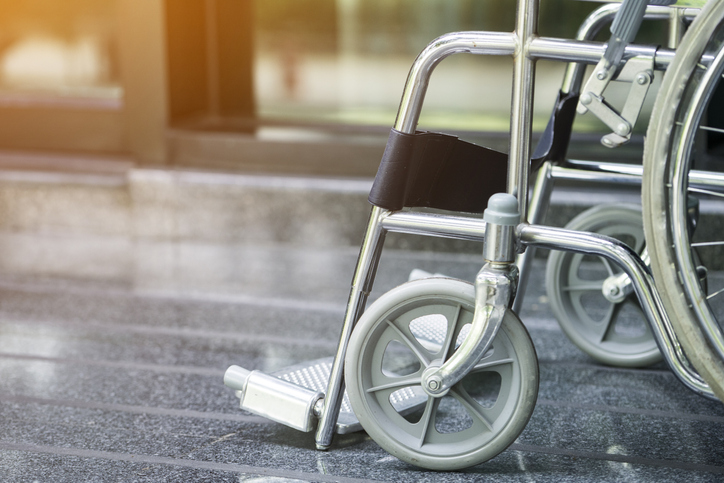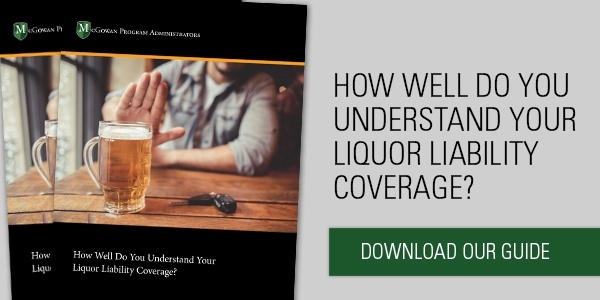A great restaurateur knows how to accommodate guests, including guests with disabilities. More than 19% of the American population is disabled. At any time, a customer or employee may seek accommodation from your establishment. Knowing how to respond—and even to anticipate their needs—is imperative.
The Americans with Disabilities Act (ADA) protects the rights of people with disabilities. It seeks to curb discrimination and ensure businesses provide reasonable accommodations for customers and employees with disabilities. We’ll discuss the two sections of the ADA that apply directly to restaurants: Title I and Title III.
Title I: Restaurant Employees
Title I of the ADA deals with the rights of employees or prospective employees with disabilities and the duties of the employer. However, the title applies only to restaurants with 15 or more full-time employees working on a given day. In addition, that staff level must be in place for 20 or more calendar weeks in a year.
Disabilities and Essential Job Functions
The ADA requires employers make accommodations for disabled employees to assist with their essential job functions. The accommodations can be short or long term, depending on the disability. The ADA makes exceptions for accommodations that would cause “undue hardship” to the business owner, such as a change in the nature of the business or a significant expense.
However, reasonable accommodations are many and variable. Examples include:
- Using alternate sources of written materials for those with visual impairments, such as braille.
- Installing an access ramp.
- Changing job expectations such as delegating minor tasks to other employees.
- Modifications to a typical work schedule.
- More frequent breaks.
Note the ADA may require reasonable accommodations for job applicants as well, which is why the ADA outlaws discrimination based on a prospective employee’s disability.
Accommodations for Pregnant Employees
Pregnancy is not considered a disability under the ADA. However, there are protections in place for pregnant employees under the Pregnancy Discrimination Act (PDA).
Still, some medical conditions that result from pregnancy may fall under ADA protections. For example, if a pregnant employee acquires gestational diabetes, there may be protection for reasonable accommodations under Title I of the ADA.
What the ADA Says About What You Can Ask
The ADA defines what employers can ask job candidates, and when such questions may be asked. Here are a few examples of most concern to restaurant managers:
Medical conditions and obvious disabilities: Employers cannot ask about medical conditions until after an initial job offer is made. Concerning disabilities, an employer may not ask about the disability itself but may ask a candidate to explain how he or she may need accommodations to perform the job functions.
Illegal drug use or drinking: Applicants or employees who use illegal drugs are not protected under the ADA. Employers may ask applicants about illegal drug use. Alcohol habits may also be discussed.
Title III and Accommodations for the Public
Title III of the ADA describes protections for customers with disabilities. Here are a few areas of note for restaurant managers:
Service Animals: In restaurants, service animal accommodations are guaranteed under the ADA. The act defines a service animal as a dog that has been trained to work for, or perform a task for, a person with a disability.
Examples include dogs who have been trained to alert their diabetic owners when blood sugar levels become too high or low. Another example is a dog that is trained to detect an oncoming seizure and work to keep their owner safe until the seizure passes.
The ADA doesn’t offer protection for emotional support, therapy, comfort, or companion animals.
The ADA allows for you or your staff to ask only two questions about a service animal:
- Whether the dog is a service animal and required because of a disability?
- What task or job does the dog perform?
- (Note that you are not permitted to ask what disability the customer is living with.)
Ensuring Access for Customers with Disabilities
Removing barriers to access is a key concern when accommodating individuals with disabilities. Study the following areas to ensure your restaurant is accessible.
Parking: Focus on providing accessible parking with a curb ramp or curb cut. Such parking should include an access aisle large enough for a person in a wheelchair to enter and exit a vehicle.
Entrance: Ensure at least one opening to the restaurant is accessible for people who use a wheelchair, walker or cane. If your accessible entrance is not the main entrance, your main door should include a sign directing patrons to the accessible entrance.
An accessible entrance must also include an automatic door opener, doorbell, or intercom system from which a person can ask for assistance.
Pathways: Once the parking and entrance areas are accessible, ensure the paths between tables and chairs is accommodating. Tables must be between 28 and 34 inches from the floor. Accessible tables should be available throughout the establishment as opposed to gathered in a single area. Remember, you want the experience for a customer with a disability to be as accommodating and non-disruptive as possible.
Restroom Access: Restaurants must also ensure people with disabilities have access to the restroom. Accommodations include grab bars around the toilet, space in the bathroom for a wheelchair to turn 180 degrees, and wheelchair access to water, soap, and other dispensers.
Beyond Structural Accommodations in Restaurants
Accommodations and access for patrons with disabilities touch all areas of restaurant management and should remain top of mind in business decisions.
Consider the current trend of eliminating plastic straws. To do so may be beneficial to the environment but can place undue hardship on people with disabilities. A person with a disability may require a plastic straw to enjoy their beverage. Even if your restaurant is going straw-less, there may be a good point in keeping some straws (or paper straws) on hand upon customer request.
Training Your Staff
In addition to keeping accessibility in mind, restaurant managers must provide ongoing training and support to staff. Instruction on best practices for accommodating customers with disabilities should be modeled and discussed.
Encourage friendly, helpful hospitality, and remind staff to ask, “What can I do to help?”
Consider Your Accommodations and Be Prepared
Creating accommodations for patrons and employees with disabilities is an ongoing priority for restaurateurs. Forward thinking, inclusivity, and proper staff training are the underpinnings of a successful approach.
Partnering with a provider like McGowan is one key way to ensure you’re covering all your bases with having a successful and welcoming business. That’s why our Restaurant Package insurance has been sought after from restaurant owners of all kinds. Contact us today to discuss a policy.



